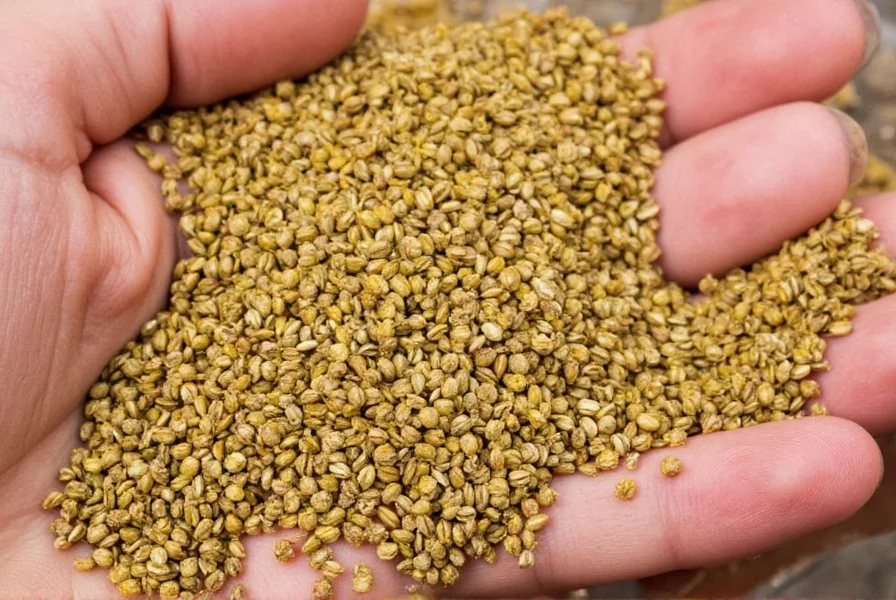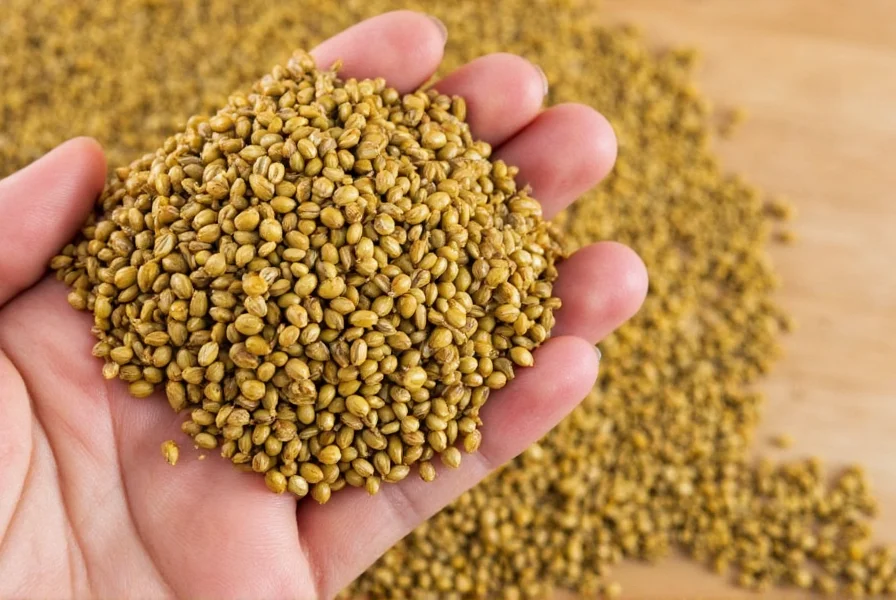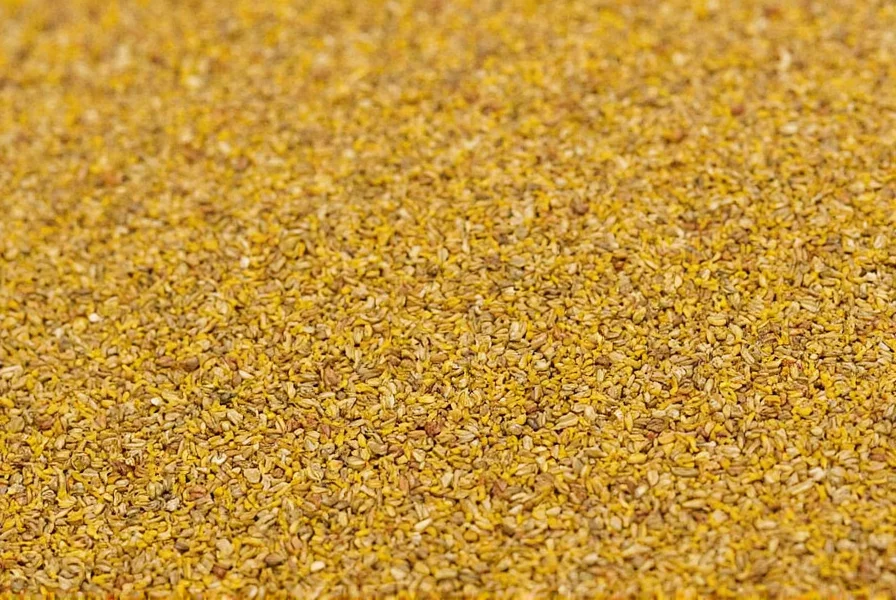Table of Contents
Mustard Seed: Powerhouse of Flavor and Nutrition
Mustard seeds are small but mighty, packed with flavor and nutrition. Whether you're a home cook looking to elevate dishes or someone focused on health, this guide covers everything you need to know: from types and culinary uses to proven health benefits and practical tips for maximizing their potential.

Types of Mustard Seeds
There are several varieties of mustard seeds, each with its own distinct flavor profile and use:
- Black Mustard Seed: Known for its strong, pungent flavor, black mustard seed is commonly used in Indian cuisine, especially in curries and pickles.
- Yellow Mustard Seed: Milder and more aromatic, yellow mustard seed is often used in Western dishes like sausages, sauces, and condiments.
- Brown Mustard Seed: Slightly milder than black but stronger than yellow, brown mustard seed is popular in Middle Eastern and Mediterranean recipes.
Each type brings something different to the table, so choosing the right one depends on your recipe and taste preference.

Culinary Uses of Mustard Seed
Mustard seed is incredibly versatile when it comes to cooking. It can be used whole, ground, or as part of a paste. Here are some common culinary applications:
- Tempering: In Indian cuisine, mustard seeds are often tempered in hot oil before adding other ingredients. This releases their flavor and adds a nutty aroma to the dish.
- Pickling: Mustard seeds are a key ingredient in many pickles, especially in South Asian and European cuisines. They add a sharp, tangy flavor.
- Condiments: Ground mustard seed is used to make traditional condiments like English mustard and Dijon mustard.
- Baking: Some breads and pastries include mustard seed for a subtle kick of heat and depth of flavor.

Health Benefits of Mustard Seed
Beyond its culinary uses, mustard seed offers scientifically supported health benefits. Rich in antioxidants, vitamins, and minerals, it supports digestion, boosts immunity, and reduces inflammation. Research from the National Institutes of Health shows mustard seeds contain compounds like glucosinolates that may help regulate blood sugar and support metabolic health.
| Nutrient | Amount per 100g |
|---|---|
| Calories | 376 kcal |
| Protein | 25 g |
| Fat | 18 g |
| Carbohydrates | 19 g |
| Fiber | 4 g |
| Vitamin C | 12 mg |
| Manganese | 11.5 mg |
Mustard seeds also contain allyl isothiocyanate, which stimulates digestive enzymes and helps relieve bloating. According to studies published in the Journal of Food Science, regular consumption supports immune function and may reduce inflammation-related conditions.
Buying Guide for Mustard Seed
When purchasing mustard seed, it's important to choose high-quality products that will enhance your cooking experience. Here's a guide to help you make the best choice:
Features to Look For
- Color: Fresh mustard seeds should be bright and uniform in color—black, yellow, or brown depending on the variety.
- Smell: A strong, pungent aroma indicates freshness. Avoid seeds that smell stale or musty.
- Texture: The seeds should be firm and not soft or broken.
Advantages of Quality Mustard Seed
- Enhanced Flavor: High-quality mustard seeds offer a richer, more complex flavor compared to lower-grade options.
- Longer Shelf Life: Properly stored, quality mustard seeds can last up to two years without losing potency.
- Consistent Results: Using premium seeds ensures that your recipes turn out consistently every time.
Use Cases and Target Audience
Mustard seed is suitable for a wide range of users:
- Chefs and Home Cooks: Ideal for those who want to experiment with new flavors and add depth to their dishes.
- Health Enthusiasts: Great for people looking to incorporate nutrient-rich ingredients into their meals.
- Culinary Students: Perfect for learning about traditional spice usage and global cooking techniques.
It's also a great addition to any kitchen pantry, whether you're making a spicy curry or a simple salad dressing.
Practical Tips for Using Mustard Seed
Here are some practical tips to help you get the most out of your mustard seed:
- Toast Before Using: Toasting mustard seeds in a dry pan enhances their flavor and aroma. Just a few minutes over medium heat can make a big difference.
- Use in Moderation: Even though it's a small seed, mustard can be quite strong. Start with a small amount and adjust to taste.
- Combine with Other Spices: Mustard pairs well with cumin, turmeric, garlic, and ginger. Experiment with combinations to find your favorite flavor profiles.
- Store Properly: Keep mustard seeds in an airtight container in a cool, dark place. This helps preserve their potency and shelf life.
Mustard seed can also be used in creative ways, such as mixing it with vinegar or oil to make homemade mustard or using it in marinades for meats and vegetables.
Frequently Asked Questions About Mustard Seed
What are the top health benefits of mustard seeds?
Mustard seeds are rich in selenium, magnesium, and antioxidants that support immune function, reduce inflammation, and aid digestion. Studies show they help regulate blood sugar and may have anti-cancer properties due to glucosinolates.
How should I store mustard seeds to maintain freshness?
Store mustard seeds in an airtight container in a cool, dark place away from direct sunlight and moisture. Whole seeds can last up to 2-3 years when stored properly, while ground mustard loses potency more quickly and should be used within 6-12 months.
What's the difference between mustard seeds and prepared mustard?
Mustard seeds are the raw ingredient, while prepared mustard is made by grinding the seeds and mixing them with liquids like vinegar, water, or wine, along with other spices. The preparation process activates enzymes that create mustard's characteristic heat and flavor.
Are mustard seeds spicy on their own?
Whole mustard seeds aren't spicy when dry. The heat develops when the seeds are cracked or ground and mixed with liquid, which activates the enzyme myrosinase. Different varieties have different heat levels, with black mustard seeds being the hottest, followed by brown, then yellow.
Can mustard seeds be eaten raw?
Yes, mustard seeds can be eaten raw, but they have a bitter taste when unprocessed. Most culinary applications involve toasting, grinding, or soaking the seeds to develop their flavor. Eating large quantities of raw mustard seeds is not recommended as they contain compounds that can be irritating in excess.
How do mustard seeds aid digestion?
Mustard seeds contain allyl isothiocyanate, which stimulates digestive enzymes and promotes healthy digestion. They've been traditionally used to relieve indigestion and bloating, and their fiber content supports gut health and regular bowel movements.
Conclusion
Mustard seeds may be small, but they have a big impact on both flavor and nutrition. Whether you're a passionate cook or just starting out, understanding the different types, uses, and benefits of mustard seed can open up a world of culinary possibilities. From tempering in curries to baking in breads, this humble spice can bring depth, heat, and complexity to any dish. So next time you're in the kitchen, don't forget to reach for that jar of mustard seed—it might just be the secret ingredient you've been missing.











 浙公网安备
33010002000092号
浙公网安备
33010002000092号 浙B2-20120091-4
浙B2-20120091-4